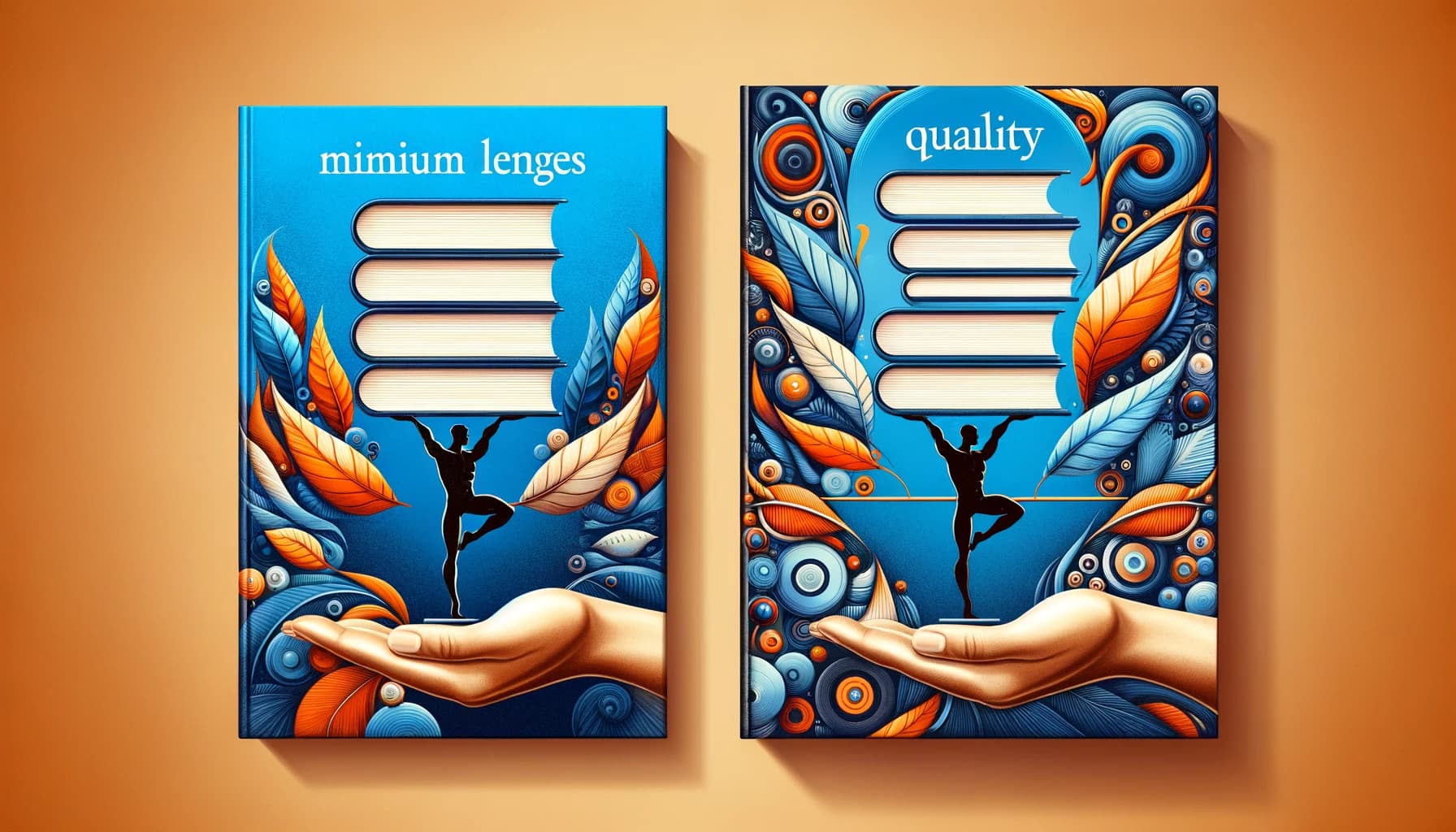Table of Contents
Finding a literary agent can feel stressful, especially if you’re unsure how to even start. You’ve got your manuscript ready, or at least something close to it, but now you’re stuck wondering “what’s next?” And yes, deciding who to trust with your literary baby is genuinely tricky.
The good news is, this guide breaks things down into simple, easy-to-follow steps that’ll clear your confusion right up. From figuring out who reps your genre, crafting a standout query letter, all the way to confidently picking your agent—it’s all here. Stick around, and soon you’ll be connecting with agents who really get you and your work.
Let’s quickly cover each step so you can dive right in.
Key Takeaways
- Choose literary agents based on your book’s genre—YA fiction and LGBTQ+ stories are especially popular right now.
- Research agents actively looking for new authors through websites like Publishers Marketplace, QueryTracker, and Manuscript Wish List.
- Give newer agents a chance—they typically have fewer clients and more time for personalized attention.
- Prepare your manuscript well and craft a short, personalized, strong-query letter clearly stating your book’s main hook, genre, and word count.
- Send targeted submissions to a focused list (10-15 agents) closely matching your niche and carefully follow their submission guidelines.
- Attend writing conferences and pitch sessions to build personal connections with agents.
- Pick the agent whose communication style, experience, and vision match yours best, even if they’re newer to the field.

Step 1: Select a Literary Agent by Genre
Choosing the right literary agent based on your genre is your very first step to getting published, so don’t skimp on this one.
All agents have their own specialties, and sending a young adult novel manuscript to someone who specializes in nonfiction memoirs isn’t going to win you any favors—or get you published.
Right now, Young Adult (YA) fiction is the genre agents are most hungry for, with 56 agent profiles mentioning it as particularly in demand as we approach 2025.
Another hot category agents can’t seem to get enough of is LGBTQ+ fiction, meaning titles featuring diverse characters and authentic experiences are grabbing serious attention.
Not sure exactly how to pick agents for your genre? Think of your favorite published authors writing similar stories; find out who represents them and start there.
Make a list using platforms like Publishers Marketplace or QueryTracker to track agents who have scored recent book deals in your niche—this can be super helpful.
Also, don’t hesitate to browse credible sources and other writers’ experiences online for extra insight on narrowing down literary agents by genre.
Step 2: Research Top Literary Agents in Each Genre
Once you’ve figured out your genre, dig deeper to identify the standout literary agents representing authors in your specific category.
With a database listing over 1,000 U.S. literary agents searchable by 116 different categories, there’s no excuse not to find the perfect match for your manuscript.
Here’s an actionable tip: create a simple spreadsheet to record each agent’s name, website, social media handles, recent deals, submission guidelines, and any personal detail that feels relevant (like shared interests or favorite books).
It might seem like extra effort, but trust me—it makes your query process way smoother (and less stressful).
Another smart move I’ve seen is authors discussing their experiences in writing groups and forums like Absolute Write’s Water Cooler or Writer Beware; these communities can give you candid feedback about agents’ reputations.
Don’t rule out checking acknowledgments sections in books similar to yours—you’ll often find authors thanking their literary agents by name, a valuable clue you can’t overlook.
Step 3: Discover New Literary Agents Currently Accepting Clients
You might think established literary agents with tons of bestsellers are your only good bet, but newer agents can actually offer surprising advantages.
Fresh literary agents are often building their client lists from scratch, meaning they’re actively looking to take on talented new writers right now.
These newcomers might have fewer clients, meaning they have more time and energy to champion your book and give you personalized guidance.
Follow industry websites like Manuscript Wish List (MSWL), where many new agents announce exactly what they’re looking for in a manuscript—it’s seriously useful intel.
Social media, particularly Twitter hashtags like #MSWL, can also be goldmines for spotting newly minted agents seeking fresh voices.
An extra tip worth sharing: signing up early in an agent’s career might position you as one of their priority authors if your collaborations lead to success down the line.
And if you ever consider alternatives to traditional publishing methods, like learning how to get a book published without an agent, securing an early-career literary agent still builds valuable industry contacts for future projects.

Step 4: Find Reliable Sources to Identify Reputable Literary Agents
Knowing how to identify trustworthy sources when searching for literary agents will save you from headaches later.
Start with Publishers Marketplace—they’re like the Google of the publishing world, filled with updated info about agents, deals, and industry moves.
Another solid source is QueryTracker, especially if you like seeing how responsive an agent is and how quickly they get back to authors.
Don’t forget Manuscript Wish List—as we mentioned before, it keeps tabs on what specific agents wish would land in their inboxes, so it’s a handy shortcut for personalized submissions.
Also, forums like Absolute Write’s Water Cooler and Writer Beware give you the straight truth from authors who’ve already gone through submission battles, so it’s worth a pause to read before you send anything out.
And don’t underestimate the simple power of a quick Google search—if an agent or agency has been flagged repeatedly by unhappy writers, you’ll spot red flags quickly.
Step 5: Prepare Your Manuscript and Query Letter
This is your moment to impress, but real talk—around 80% of authors who made major revisions hoping to snag representation didn’t actually secure it, so get that manuscript polished before you ever hit “send.”
First, make sure your work fits a popular category, like YA fiction or dystopian novels, to maximize agent interest.
Once your manuscript’s in tip-top shape (have friends or beta readers critically review it), pay attention to your query letter—think of it as the elevator pitch you’ll give if you only had one minute to sell your story.
In your first line, hook the agent by clearly stating your genre, word count, and a one-sentence summary of your book’s core conflict or concept.
Personalize it by briefly mentioning why you’re querying them specifically (for instance, mentioning a favorite author they represent).
Keep it short, friendly, and professional—agents aren’t looking to scroll through pages here.
Step 6: Submit Your Work to the Right Literary Agents
Sending your manuscript everywhere isn’t the way—submission success is about targeting carefully.
Go back to that spreadsheet you built earlier (you did build one, right?) and follow each agent’s submission guidelines carefully–I can’t stress this enough.
Some only want the query letter first, others request sample chapters right away, and formatting mistakes can get you instantly skipped.
Focus initially on a list of about 10-15 agents who fit your work best, ensuring they’re actively acquiring in your niche, especially in popular genres like YA or LGBTQ+ fiction.
I’d also recommend setting submission goals—perhaps a handful of queries per week—so you maintain momentum without overwhelming yourself.
Step 7: Attend Writing Events and Pitch Sessions to Connect with Literary Agents
If you’re comfortable meeting in person, attending pitching events can create amazing opportunities.
Conferences like the Writer’s Digest Conference or local writer workshops often host literary agent panels and pitch sessions.
You usually get just a few minutes face-to-face, so practice summarizing your book’s hook crisply—think of it like a casual yet business-minded coffee chat you want to nail on the first try.
And don’t forget business cards with your contact info and manuscript title—they’re old-school but really help you stand out afterward.
Even if you don’t walk away with an offer right away, you’ve made personal connections, and those can matter big-time in publishing.
Step 8: Evaluate Agent Offers and Choose the Best Fit
If you’ve got multiple offers (congrats!), now it’s decision time.
Ask each interested agent important questions about their communication style, revision expectations, vision for your career, and experience selling books similar to yours.
You might feel tempted by prestige alone, but compatibility is huge—you’re going to be working closely with this person, hopefully long-term, so pick an agent whose style and personality mesh well with yours.
Also, don’t overlook signing with newer agents—they can often be more dedicated, motivated, and hands-on as they build their lists.
Take your time here, trust your gut, and make sure the partnership feels right before signing on that dotted line.
FAQs
Identify literary agents by checking industry directories or reputable databases that categorize them by genre. Agent websites usually list specialties, recent publications, and client authors, providing clear guidance on who represents your specific type of book.
Consult regularly updated agent databases, writing forums, or agent websites for recent announcements about accepting queries or submissions. Social media platforms, particularly Twitter and LinkedIn, are also valuable resources for up-to-date information.
Clearly state your book’s genre, word count, and unique hook. Include a brief yet compelling summary, your writing credentials, and explain why you believe the agent is a specific fit based on their past clientele or documented interests.
Consider each agent’s expertise, track record, communication style, and enthusiasm for your book project. Request examples of past success, ask specific questions about their plans, and select someone who shares your vision and career goals.



